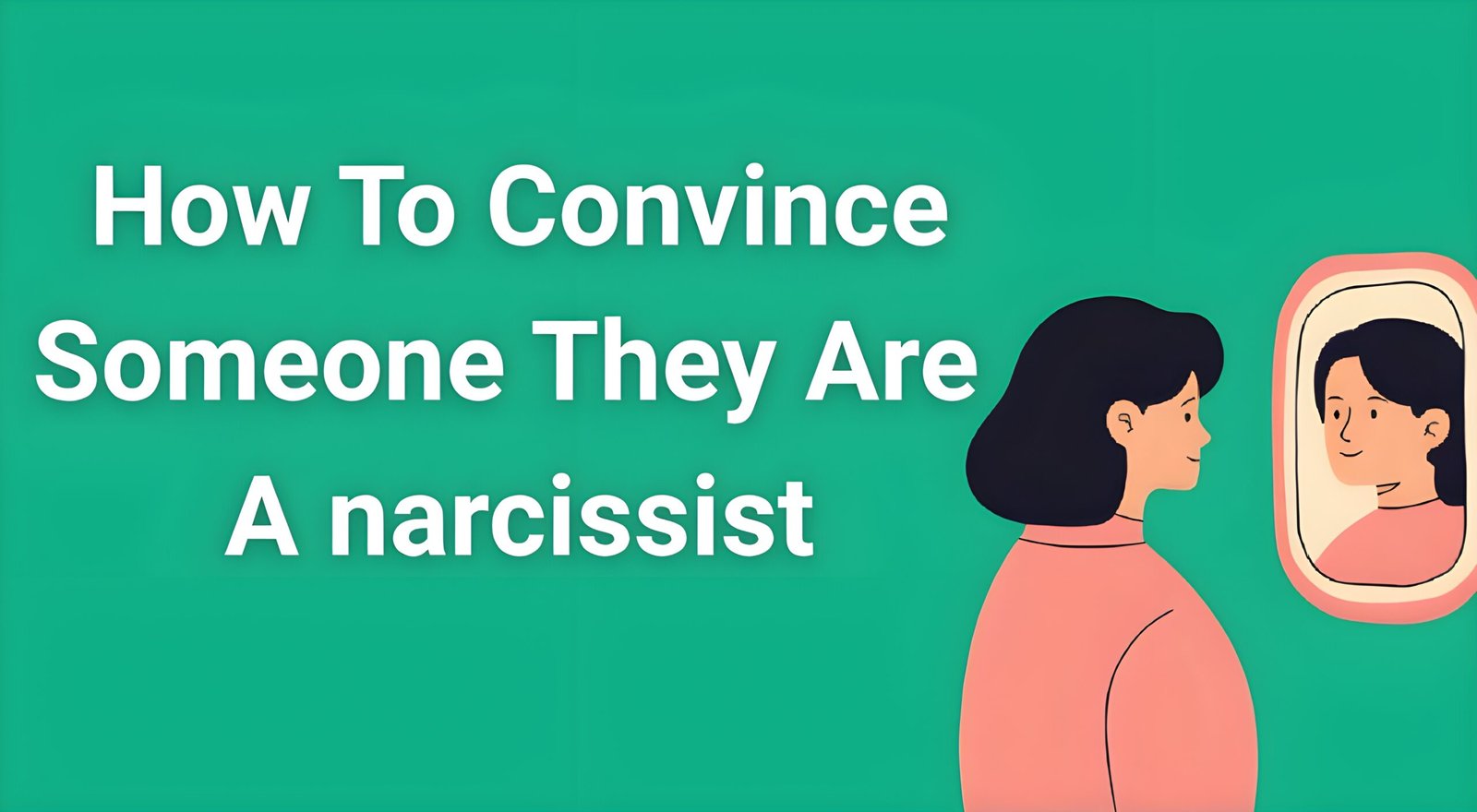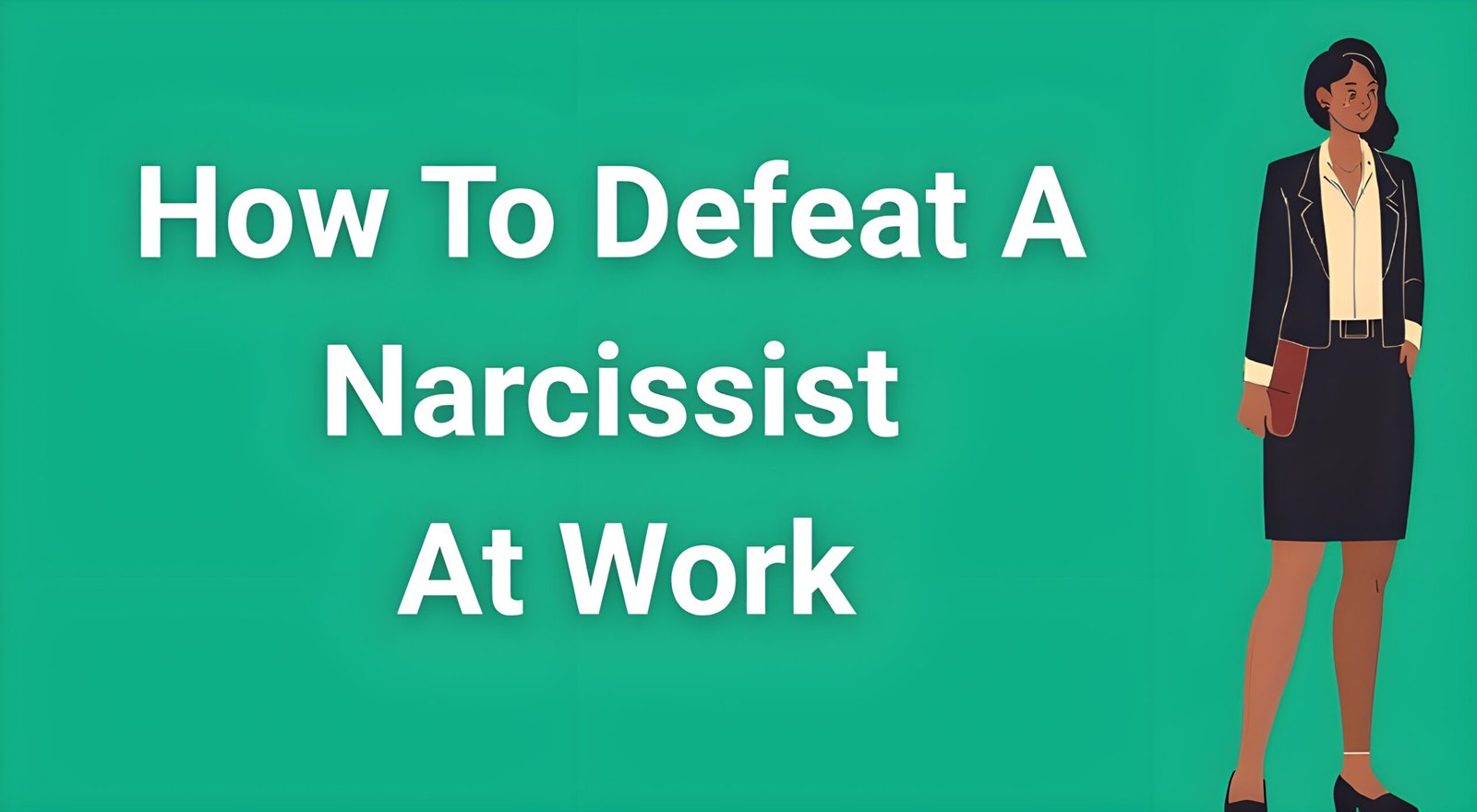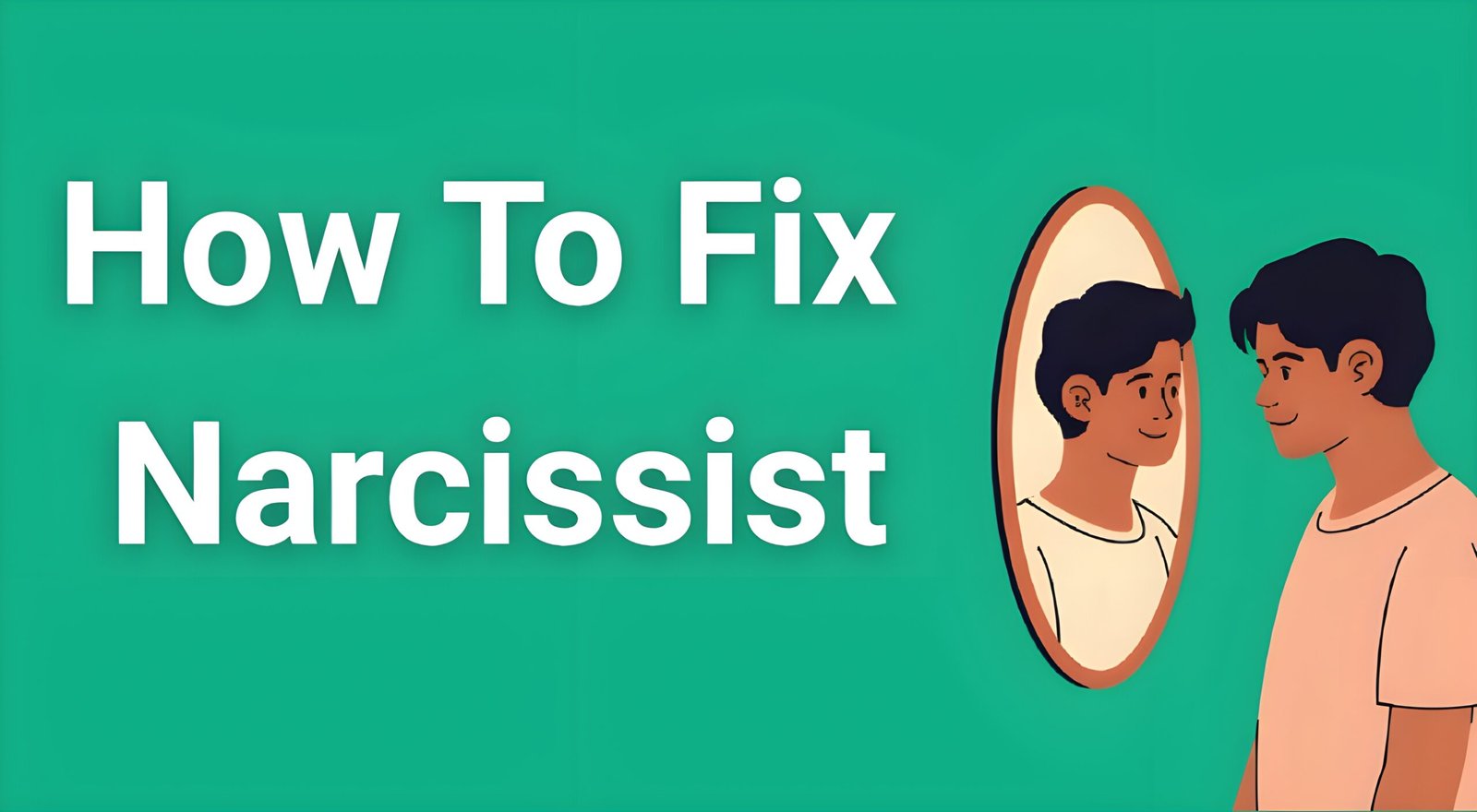You’ve probably found this article because someone in your life is displaying narcissistic behaviors, and you’re desperately wondering how to convince someone they are a narcissist. Maybe it’s your partner who never takes responsibility, your parent who always makes everything about them, or a friend who lacks empathy entirely. The desire to make them see the truth feels overwhelming, doesn’t it?
- Why You Want to Convince Someone They Are a Narcissist
- The Harsh Reality: Why Convincing a Narcissist Never Works
- What Happens When You Try to Convince Them
- The Better Question: How to Protect Yourself Instead
- When Professional Help Becomes Necessary
- Alternative Approaches That Actually Work
- Breaking Free from Trauma Bonds
- When You Can’t Leave (Yet)
- The Science Behind Narcissistic Self-Awareness
- Protecting Your Children in Narcissistic Dynamics
- Moving Forward: From Surviving to Thriving
- Red Flags That Someone Will Never Gain Self-Awareness
- Professional Resources and Next Steps
- Frequently Asked Questions
- Conclusion: Your Freedom Doesn’t Depend on Their Awareness
Here’s what mental health experts don’t want you to discover: trying to convince someone they are a narcissist almost always backfires spectacularly. But before you close this tab in frustration, understand that there are far more effective approaches that can actually protect your mental health and potentially create positive change.
Why You Want to Convince Someone They Are a Narcissist
The urge to convince someone they are a narcissist typically stems from a deep need for validation and relief. When you’re constantly questioning your own reality due to gaslighting, manipulation, and emotional abuse, getting the other person to acknowledge their behavior feels like it would solve everything.
You might be thinking: “If they just realized they have narcissistic traits, they would change.” Unfortunately, this belief often keeps people trapped in toxic cycles for years, constantly trying new ways to “make them see the light.”
The psychological term for this desperate need for acknowledgment is called seeking external validation for your internal reality. After months or years of having your perceptions questioned, dismissed, or minimized, you naturally want the person causing the pain to validate that yes, their behavior is problematic.
The Harsh Reality: Why Convincing a Narcissist Never Works
Narcissistic Defense Mechanisms Are Virtually Impenetrable
When you attempt to convince someone they are a narcissist, you’re essentially attacking their core defense system. Narcissistic individuals have spent their entire lives constructing elaborate psychological shields to protect themselves from feeling inadequate, flawed, or ordinary.
These defense mechanisms include:
Denial and Projection: Instead of accepting your perspective, they’ll likely turn the tables and accuse you of being the narcissist. This isn’t just stubbornness – it’s a psychological survival mechanism that operates below conscious awareness.
Gaslighting Intensification: Your attempts to point out narcissistic behavior often result in increased gaslighting. They may start questioning your memory, perception, or mental stability more aggressively than before.
Rage and Punishment: Many narcissistic individuals respond to perceived criticism with what psychologists call “narcissistic rage.” This can manifest as silent treatment, verbal abuse, or even escalated controlling behaviors.
The Self-Awareness Paradox
Research in narcissistic personality studies reveals a fascinating paradox: the very traits that make someone narcissistic also make them incapable of recognizing those traits in themselves. It’s like asking someone who’s colorblind to identify colors – the mechanism required for the task is precisely what’s impaired.
Dr. Elinor Greenberg, a specialist in personality disorders, explains that narcissistic individuals often lack the emotional intelligence necessary for genuine self-reflection. Even when they intellectually understand narcissistic traits, they can’t apply this knowledge to themselves due to deep-seated cognitive distortions.
What Happens When You Try to Convince Them
Immediate Defensive Responses
The moment you suggest someone might be narcissistic, expect these common reactions:
Counter-Accusations: “You’re the one with the problem.” “You’re too sensitive.” “You’re the narcissist here.”
Victim Playing: They may suddenly become the wounded party, claiming you’re attacking them unfairly or being cruel.
Love-Bombing or Hoovering: Some narcissistic individuals will temporarily shower you with affection to regain control and make you doubt your perceptions.
Information Warfare: They might research narcissism themselves, only to use the information to justify their behavior or turn it against you.
Long-Term Consequences for You
Persistently trying to convince someone they are a narcissist often leads to:
Increased Trauma Bonding: The cycle of hope (maybe they’ll finally understand) and disappointment (they dismissed me again) actually strengthens psychological addiction to the relationship.
Erosion of Self-Trust: When your repeated attempts fail, you may start doubting your own perceptions and judgment.
Emotional Exhaustion: The constant effort to “make them see” drains your emotional resources, leaving you depleted and vulnerable.
Isolation from Support Systems: You might spend so much energy focused on convincing them that you neglect relationships with people who actually validate and support you.
The Better Question: How to Protect Yourself Instead
Rather than asking how to convince someone they are a narcissist, consider these more empowering questions:
How Can I Validate My Own Reality?
Start documenting interactions through journaling or voice memos. When someone consistently makes you question your memory or perceptions, having a written record becomes crucial for maintaining your sanity.
Create what psychologists call a “reality anchor” – trusted friends or family members who can confirm your perceptions when the gaslighting becomes overwhelming.
How Can I Set Effective Boundaries?
Boundaries with narcissistic individuals require a different approach than typical relationship boundaries. They need to be:
Concrete and Specific: Instead of “respect me,” try “if you raise your voice, I will leave the room.”
Consistently Enforced: Follow through every single time, without exceptions or warnings.
Emotionally Detached: Present boundaries calmly, without explaining why they’re necessary or seeking approval.
How Can I Communicate More Effectively?
When you must interact with someone displaying narcissistic traits, use these communication strategies:
Gray Rock Method: Become as uninteresting as possible by giving minimal responses and showing little emotion.
Information Diet: Share less personal information that could be used against you later.
Fact-Based Communication: Stick to observable facts rather than feelings or interpretations.
When Professional Help Becomes Necessary
Recognizing the Signs You Need Support
If you’re experiencing these symptoms, it’s time to seek professional guidance:
- Constantly questioning your own memory or perception
- Feeling like you’re “walking on eggshells” daily
- Physical symptoms of stress (headaches, stomach issues, sleep problems)
- Isolation from friends and family
- Difficulty making decisions without the other person’s approval
- Feeling responsible for their emotions and reactions
Types of Professional Support Available
Individual Therapy: Working with a therapist who understands narcissistic abuse can help you rebuild your sense of reality and develop effective coping strategies.
Support Groups: Connecting with others who’ve experienced similar situations provides validation and practical advice.
Specialized Assessment Services: Sometimes you need an expert analysis of your specific situation to gain clarity about what you’re truly dealing with. A comprehensive narcissistic abuse clarity report can help you understand the exact patterns of manipulation and abuse you’re experiencing, providing a personalized roadmap for moving forward. Professional assessment validates your experiences and gives you concrete strategies tailored to your unique situation.
Alternative Approaches That Actually Work
The Indirect Influence Method
Rather than direct confrontation about narcissistic traits, try these subtle approaches:
Model Healthy Behavior: Demonstrate empathy, accountability, and emotional regulation in your own actions.
Ask Clarifying Questions: Instead of accusations, ask questions like “Help me understand why you feel that way” or “What would you do in my position?”
Use “I” Statements: Focus on your experience rather than their character: “I feel unheard when conversations focus only on your experiences.”
The Strategic Disengagement Approach
Sometimes the most powerful influence is stepping back:
Reduce Emotional Availability: Stop providing excessive emotional support or validation.
Limit Rescue Behaviors: Allow them to experience natural consequences of their actions.
Focus on Your Own Growth: Invest energy in your own healing and development rather than trying to change them.
Breaking Free from Trauma Bonds
Understanding why you feel compelled to convince someone they are a narcissist often reveals underlying trauma bonds. These psychological attachments form when someone alternates between kindness and cruelty, creating an addiction-like dependency.
The Neurological Reality of Trauma Bonds
Research shows that trauma bonds activate the same neural pathways as substance addiction. The intermittent reinforcement of affection and abuse creates powerful psychological chains that make leaving feel impossible, even when you logically know the relationship is harmful.
Breaking these bonds requires more than willpower – it requires rewiring your brain’s response patterns through consistent, structured approach. A systematic 30-day trauma bond recovery workbook can provide the daily framework needed to break free from these psychological chains. The process typically involves understanding the addiction cycle, implementing specific detachment techniques, and gradually rebuilding your sense of self outside the toxic dynamic.
Practical Steps for Breaking Trauma Bonds
Recognition Phase: Acknowledge that your attachment might be trauma-based rather than love-based.
Documentation Phase: Track the cycle of highs and lows in the relationship to see patterns clearly.
Gradual Detachment: Slowly reduce emotional investment while building external support systems.
Identity Recovery: Reconnect with who you were before this relationship consumed your identity.
When You Can’t Leave (Yet)
Many people searching for how to convince someone they are a narcissist are actually looking for ways to survive an inescapable situation. Whether due to financial dependence, child custody issues, or other practical constraints, sometimes you must coexist with narcissistic behavior while planning your eventual exit.
For those facing these challenging circumstances, specialized guidance on how to survive when you can’t leave yet becomes essential. This involves developing specific coping strategies, safety protocols, and emotional protection techniques that help you maintain your sanity and wellbeing while working toward future independence.
Survival Strategies for Mandatory Contact
Emotional Armor Techniques: Develop internal strategies to protect your emotional well-being during necessary interactions.
Strategic Planning: Create step-by-step plans for eventual independence, whether that’s financial, legal, or logistical.
Energy Conservation: Learn to minimize the emotional energy you invest in trying to change or convince them.
Safety Protocols: Develop specific strategies for de-escalating situations and protecting yourself from escalated abuse.
The Science Behind Narcissistic Self-Awareness
Why Narcissists Struggle with Self-Recognition
Recent neuroscience research reveals fascinating insights about narcissistic self-awareness. Brain imaging studies show that individuals with narcissistic traits have different activation patterns in areas responsible for empathy and self-reflection.
The prefrontal cortex, which governs self-awareness and emotional regulation, often shows reduced activity in narcissistic individuals. This isn’t a choice – it’s a neurological reality that makes genuine self-recognition extremely difficult.
Rare Cases of Narcissistic Self-Awareness
While most narcissistic individuals never develop true self-awareness, some factors can occasionally trigger genuine recognition:
Major Life Consequences: Losing important relationships, careers, or financial stability can sometimes crack through denial.
Intensive Therapy: Long-term, specialized therapy with a skilled practitioner might help some individuals develop limited self-awareness.
Aging and Reflection: Some research suggests that narcissistic traits may soften with age, potentially allowing for greater self-reflection.
Co-occurring Mental Health Issues: Depression or anxiety might create enough discomfort to motivate genuine self-examination.
However, even when narcissistic individuals gain some self-awareness, this rarely translates into meaningful behavioral change without extensive professional intervention.
Protecting Your Children in Narcissistic Dynamics
If children are involved in your situation, the stakes become even higher. Children exposed to narcissistic behavior often develop their own emotional and psychological challenges that can persist into adulthood.
Helping Children Understand Difficult Behavior
Age-Appropriate Explanations: Explain difficult behavior without demonizing the other parent or person.
Emotional Validation: Confirm children’s perceptions when they notice inconsistent or hurtful behavior.
Coping Skills Training: Teach children emotional regulation techniques and healthy boundary-setting.
Professional Support: Consider therapy for children who are showing signs of stress or confusion.
Breaking Generational Cycles
Understanding narcissistic behavior patterns helps prevent passing these dynamics to the next generation. Children who grow up with narcissistic parents often struggle with:
- Difficulty trusting their own perceptions
- People-pleasing tendencies
- Attraction to similar personality types in relationships
- Challenges with healthy boundary-setting
Early intervention and education can help break these generational patterns.
Moving Forward: From Surviving to Thriving
Rebuilding Your Identity
After attempting to convince someone they are a narcissist for months or years, you may have lost touch with your own identity. Recovery involves:
Rediscovering Your Values: What matters to you outside of this relationship?
Reconnecting with Your Interests: What did you enjoy before this dynamic consumed your energy?
Rebuilding Your Support Network: Who are the people who validate and support your authentic self?
Developing Your Voice: Practice expressing your thoughts and feelings without fear of criticism or retaliation.
Creating a New Normal
Moving beyond the need to convince someone they are a narcissist requires creating new patterns:
Healthy Relationship Models: Spend time with people who demonstrate mutual respect, empathy, and accountability.
Personal Growth Focus: Invest energy in your own development rather than trying to change others.
Boundary Maintenance: Continue practicing healthy boundary-setting in all relationships.
Regular Reality Checks: Maintain connections with trusted people who can help you stay grounded in reality.
Red Flags That Someone Will Never Gain Self-Awareness
Recognizing Hopeless Cases
While it’s important to maintain some hope for human growth and change, certain signs indicate that someone is unlikely to ever gain meaningful self-awareness:
Consistent Blame-Shifting: Every problem is always someone else’s fault, without exception.
Lack of Genuine Remorse: Apologies (if they occur) focus on consequences to them rather than harm to others.
Pattern Repetition: The same harmful behaviors repeat endlessly without meaningful change.
Resistance to Professional Help: Refusal to engage with therapy or counseling, or sabotaging therapeutic relationships.
Escalating Control: Increasing attempts to control others’ perceptions, behaviors, or access to support.
Accepting the Reality
Sometimes the most loving thing you can do for yourself is accepting that someone may never change. This doesn’t mean giving up hope for their potential as a human being, but it does mean releasing yourself from the responsibility of being their catalyst for change.
Professional Resources and Next Steps
When to Seek Immediate Help
Contact professional resources immediately if you experience:
- Threats of violence or self-harm
- Complete isolation from support systems
- Severe depression or suicidal thoughts
- Physical abuse of any kind
- Financial abuse that threatens your basic survival
Building Your Recovery Team
Effective recovery from narcissistic abuse typically involves multiple types of support:
Mental Health Professionals: Therapists specializing in narcissistic abuse and trauma recovery.
Medical Professionals: Doctors who can address physical symptoms of chronic stress.
Legal Advocates: If needed for custody, divorce, or protection order situations.
Spiritual/Community Support: Faith communities, support groups, or other meaning-making resources.
Practical Support: Friends, family, or professionals who can help with concrete needs like housing, childcare, or financial planning.
Frequently Asked Questions
Can therapy help someone become aware they are a narcissist?
Therapy can sometimes help individuals with narcissistic traits develop limited self-awareness, but this requires their genuine willingness to engage in the process. Most narcissistic individuals either avoid therapy entirely or attend only under external pressure, limiting its effectiveness.
Should I show them articles about narcissism to help them understand?
Showing someone articles about narcissism rarely creates positive change and often backfires. They may use the information to justify their behavior, turn it against you, or become more skilled at manipulation.
Is it possible they don’t know their behavior is harmful?
While narcissistic individuals may lack insight into their motivations, most are aware that their behavior hurts others. The awareness exists, but empathy and motivation to change typically don’t.
How long should I try before giving up?
There’s no specific timeline, but if you’ve been trying for months or years without any meaningful change, it may be time to accept that your efforts aren’t creating the results you hope for.
What if they promise to change after I confront them?
Promises to change following confrontation are common but rarely result in lasting behavioral modification. Look for consistent actions over time rather than words or temporary improvements.
Can couples therapy help if one partner is narcissistic?
Couples therapy can be counterproductive when one partner has significant narcissistic traits, as they may use the therapist as another audience for manipulation or blame-shifting.
Conclusion: Your Freedom Doesn’t Depend on Their Awareness
The most important truth about how to convince someone they are a narcissist is this: your healing, happiness, and freedom don’t depend on their recognition or acknowledgment of their behavior. You don’t need them to validate your reality for it to be real.
Instead of focusing energy on convincing someone they are a narcissist, redirect that energy toward:
- Validating your own experiences and perceptions
- Building a support network of people who respect and value you
- Developing skills to protect your emotional and physical well-being
- Creating a life that reflects your values and priorities
- Healing from the trauma of trying to maintain relationships with people who cannot reciprocate empathy or respect
Your worth doesn’t depend on someone else’s ability to see and acknowledge your humanity. Your reality doesn’t require their validation to be true. Your future doesn’t need their participation to be bright.
The path forward isn’t about convincing anyone of anything – it’s about convincing yourself that you deserve relationships built on mutual respect, genuine empathy, and authentic connection. Those relationships exist, and they’re waiting for you to believe you’re worthy of them.
Remember: you cannot love someone into self-awareness, argue someone into empathy, or convince someone into caring about how their actions affect others. But you can absolutely decide that your life deserves better, and take steps every day toward that better future.
Your freedom begins the moment you stop trying to convince them and start convincing yourself that you deserve more.






